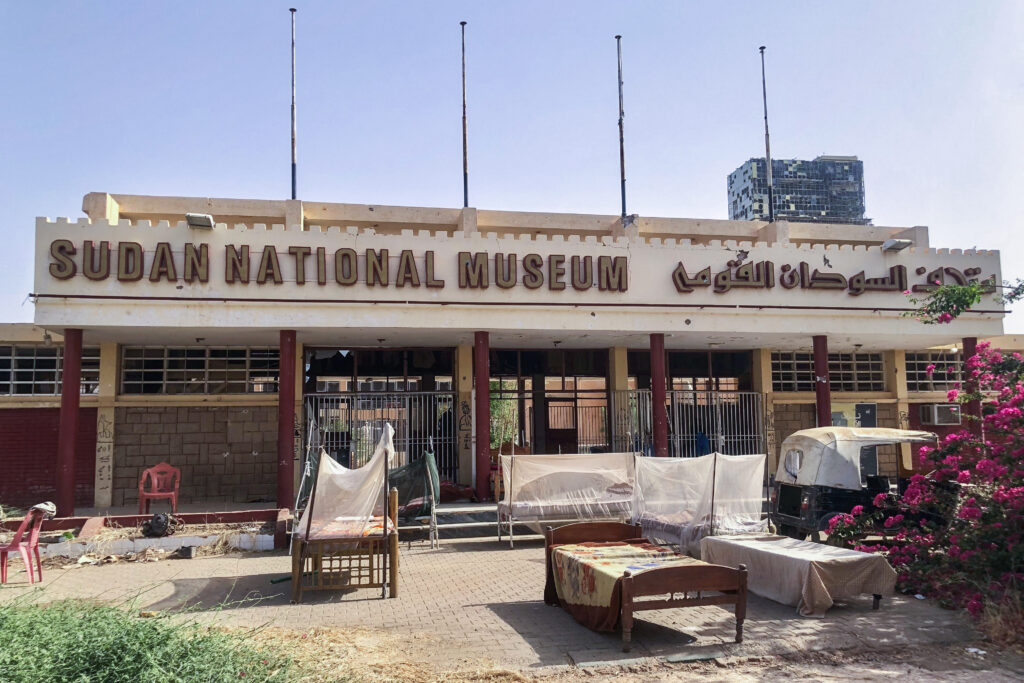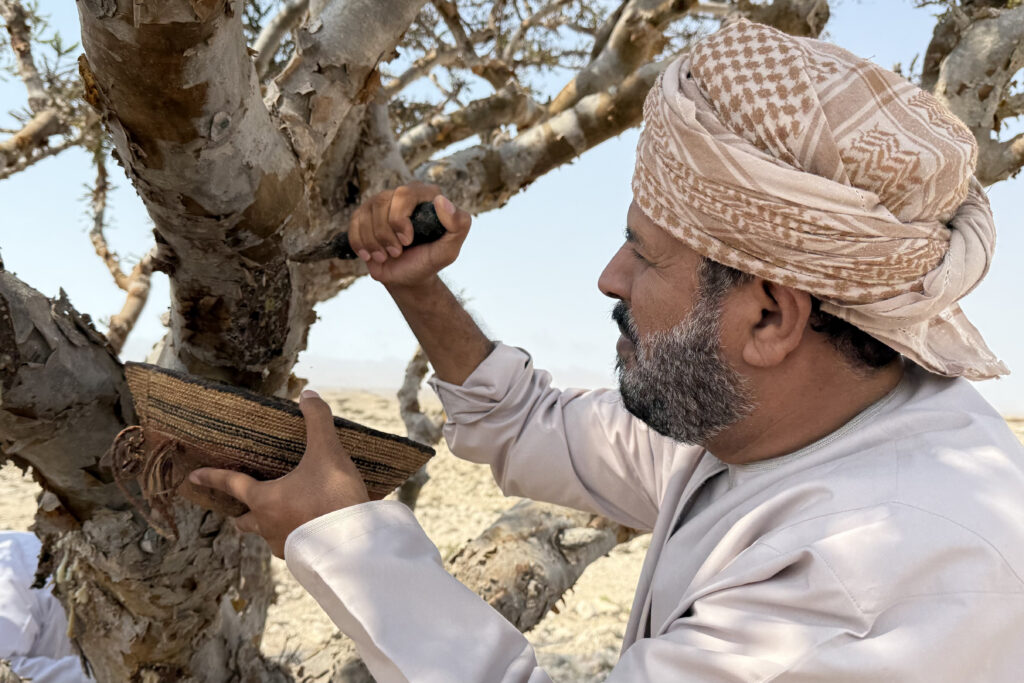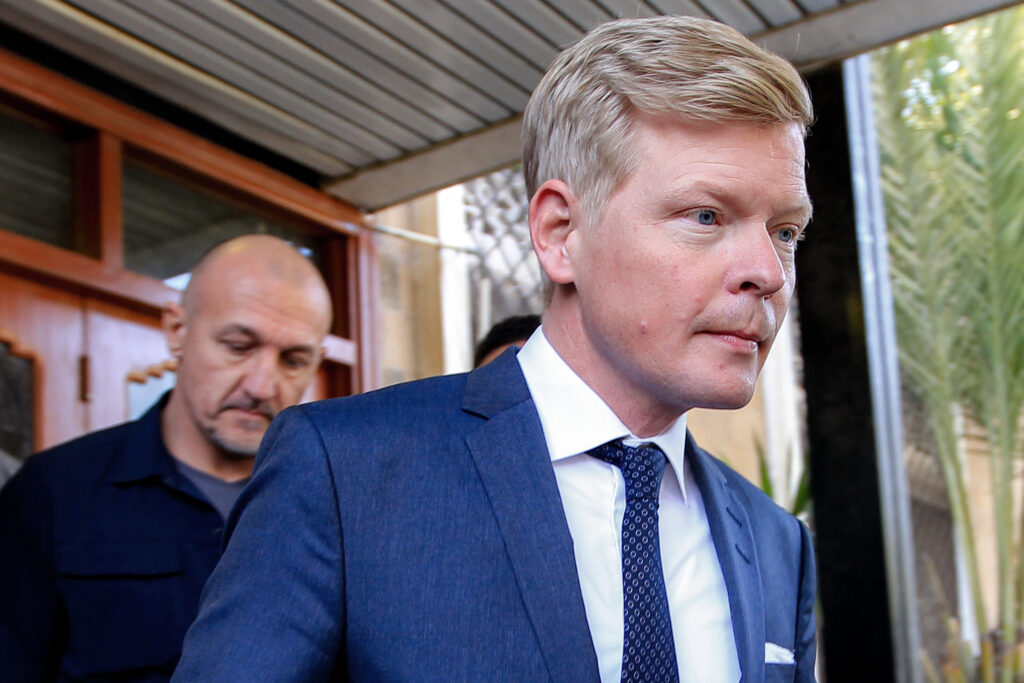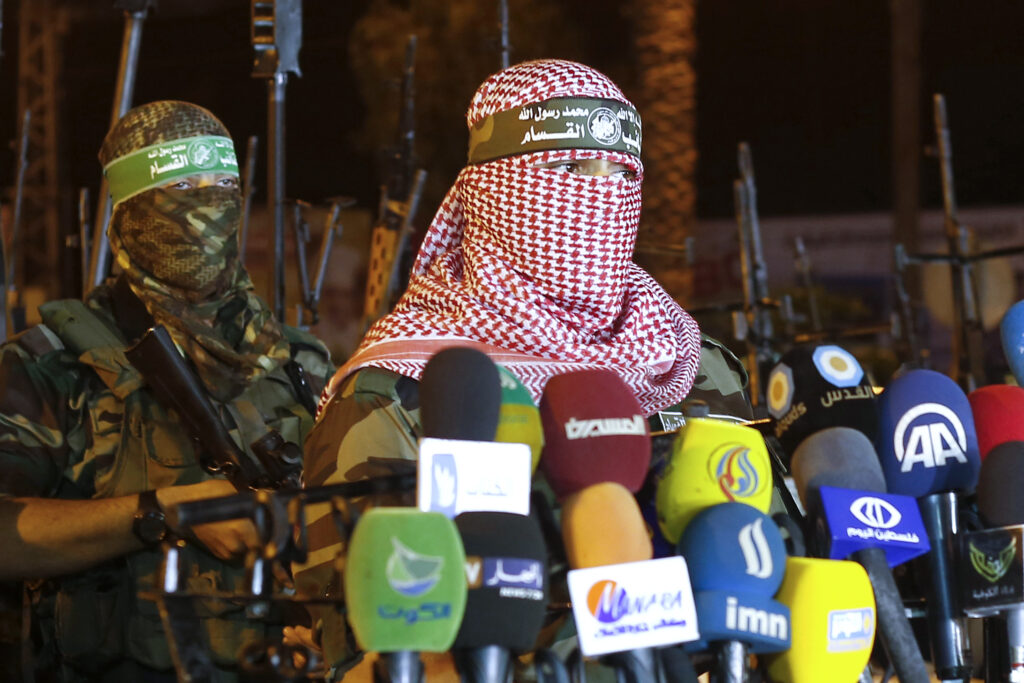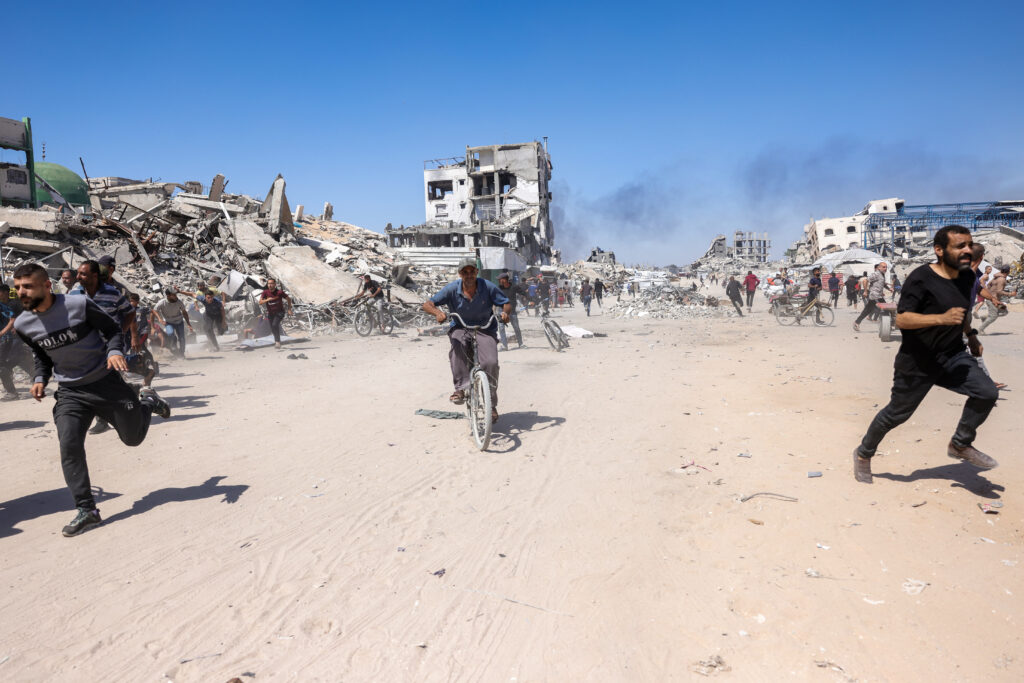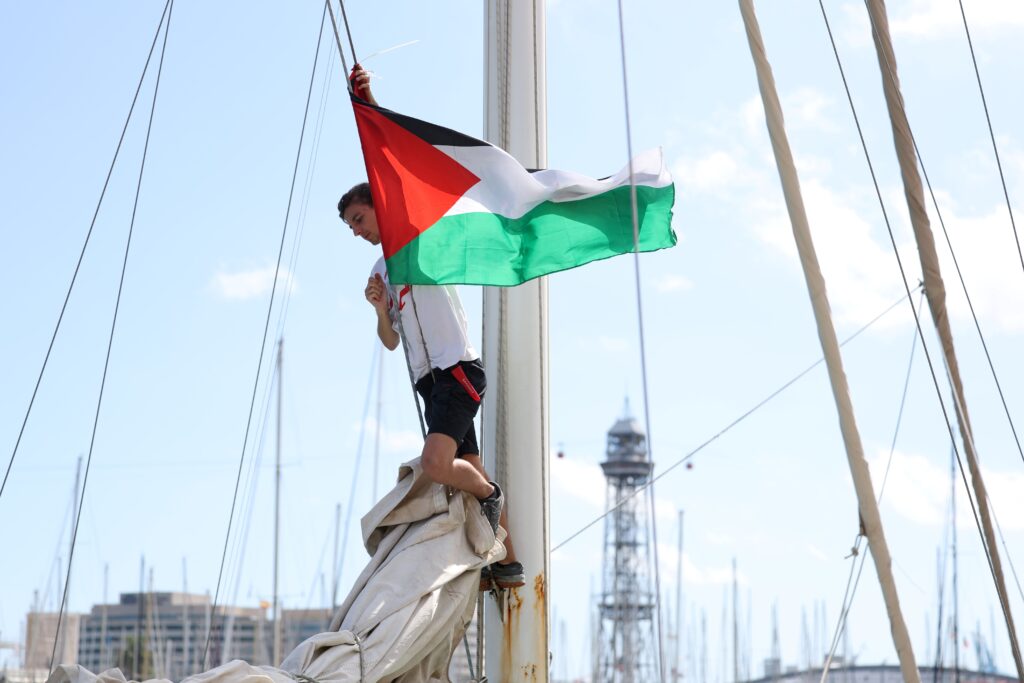AFP Asia Business
How millennia of history vanished in Sudan’s war
In the scorched courtyard of Sudan’s National Museum in Khartoum, a towering black granite statue of Kush Pharaoh Taharqa now stands alone, surrounded by shards of broken glass and shattered stone.Since the museum was looted in the early days of Sudan’s war between the army and paramilitaries in April 2023, thousands of priceless antiquities, many dating back to the 3,000-year-old Kingdom of Kush, have vanished.Officials believe that some have been smuggled across borders into Egypt, Chad and South Sudan, but there is no trace of the vast majority of the pieces.”Only the large, heavy objects that couldn’t be carried off were left behind,” said Rawda Idris, a public prosecutor and member of Sudan’s Committee for the Protection of Museums and Archeological Sites.At its height, the museum housed over half a million artefacts spanning 7,000 years of African history that, according to former antiquities director Hatim al-Nour, “shaped the deep history of Sudanese identity”.Colossal statues of Kushite war deities now stand sentinel over the neglected grounds, beneath a ceiling bearing the blackened scars of shelling.The rest of the museum’s precious contents have disappeared, the vast majority seemingly without a trace.- ‘War crime’ -Central Khartoum, where the museum stands along with Sudan’s main state institutions, was a battlefield from April 2023, when the paramilitary Rapid Support Forces (RSF) swept through town.It was only after the army recaptured the capital in March that Sudan’s antiquities officials returned for the first time to find their precious museum in ruins.The worst blow, they say, was the loss of its famed “Gold Room”, which had housed solid-gold royal jewellery, figurines and ceremonial objects.”Everything in that room was stolen,” said Ikhlas Abdel Latif, director of museums at the Sudanese antiquities authority.According to her, the artefacts were transported in large trucks, through Khartoum’s twin city of Omdurman, westwards to the RSF stronghold region of Darfur, before some emerged across the South Sudanese border. The bulk of the stolen artefacts were from the Kingdom of Kush, a Nubian civilisation that once rivalled ancient Egypt in wealth, power and influence.Its legacy — preserved in artefacts sculpted from stone and bronze and adorned with gemstones — has now been gutted, one of countless victims of Sudan’s war between rival generals.The conflict between army chief Abdel Fattah al-Burhan and his former deputy, RSF commander Mohamed Hamdan Daglo, has killed tens of thousands and created the world’s largest hunger and displacement crises.Army-aligned government officials accuse RSF fighters of looting the National Museum and other heritage sites, calling their destruction of artefacts a “war crime” — an accusation the paramilitary group denies.- Black market offers -In September last year, UNESCO issued a global alert, urging museums, collectors and auction houses to “refrain from acquiring or taking part in the import, export or transfer of ownership of cultural property from Sudan”.An official at Sudan’s antiquities authority told AFP that Sudan is working with neighbouring countries to track stolen items.Interpol also confirmed to AFP it is involved in efforts to locate the missing artefacts, but declined to provide further details.Last spring, “a group of foreigners were arrested” in Sudan’s northern River Nile state with antiquities in their possession, said Idris, the public prosecutor.Two sources at the antiquities authority said another group had communicated with the Sudanese government from Egypt, offering to return looted antiquities in exchange for money. It remains unclear how the government responded to the offer.Kushite funerary statues are particularly sought after on the black market because they are “beautiful, small and portable”, Abdel Latif says.But specialists have so far been unable to trace them or the contents of the Gold Room anywhere.According to Abdel Latif, sales are mostly happening in tightknit smuggling circles behind closed doors.- $110 million and counting -The National Museum in Khartoum is by no means the only cultural casualty of the Sudan war.The scale of losses wrought upon it “can’t make us forget the destruction of all the other museums, no less important” as repositories of Sudanese heritage, Nour, the former antiquities director, told AFP.More than 20 museums across Sudan have been looted or destroyed, according to officials, who estimate the total value of the losses to be around $110 million so far.In Omdurman, the Khalifa House Museum stands battered and bruised, its walls pocked with bullet holes and the jagged lesions of artillery fire.The seat of power in 18th-century Sudan, the building now houses broken glass and splintered relics, its collections smashed to bits.In Darfur, the besieged city of El-Fasher’s Ali Dinar Museum, the largest in the western region, has reportedly been destroyed by fighting.In South Darfur state capital Nyala, a local source said the city’s museum has become impossible to access.”The area is now completely destroyed,” said the source. “Only RSF fighters can move there.”Abdel Latif said the museum, renovated after years of closure, “has now become a military base”.
In oil-rich Oman, efforts to preserve frankincense ‘white gold’
The arid Dawkah valley is home to one of Oman’s most prized resources: not oil or gas but frankincense trees, their fragrant sap harvested for millennia by residents who call it “white gold”.Located in Oman’s southern Dhofar region, bordering Yemen, the valley is the world’s largest such reserve, home to around 5,000 frankincense trees that dot the barren earth, their trunks bearing kernels that exude a distinctive woody scent.”For us, frankincense is more precious than gold. It’s a treasure,” said Abdullah Jaddad, a frankincense harvester resting in the shade of a tree.The oil extracted from the sap of the frankincense tree is used in perfume and skincare but it is also sold as solid beads of fragrance in local markets.The high-end Omani perfume-maker Amouage, which manages the reserve, sells its luxury scents internationally for hundreds of dollars a bottle — with one limited edition perfume containing frankincense sold for nearly $2,000.The Dawkah valley is one of the rare places in the world where the Boswellia tree, from which frankincense resin is extracted, grows. Since 2000, it has been a UNESCO World Heritage Site as part of the Land of Frankincense listing, along with Khor Rori, Al Baleed and Shisr.- Like oil -With its unique earthy scent, frankincense has long been used as incense, but also in traditional medicine, and even religious rituals.Before modern technology, the frankincense trade, which began in the third millennium BC, extended from Dhofar via sea and caravan routes to Mesopotamia, the Indus Valley and Ancient Egypt, all the way to Greece, Rome and even China.”Frankincense had roughly the same value as oil today,” according to Ahmed al-Murshidi, who heads the Khor Rori site.The ancient port of Samahram, which forms part of the Khor Rori site, served as the gateway for frankincense to the world.As Jaddad collected dried beads of sap from the trees, he told AFP that the type of frankincense found in the valley was the Najdi — one of four main varieties.The Najdi and Hojari varieties are used for their medicinal properties, according to Faisal Hussein Bin Askar, whose father founded the Bin Askar frankincense shop, in business since the 1950s.”The cleaner and purer the frankincense, the more suitable it is for drinking as a treatment, while the rest is used as incense,” he said, adding that several factories in Dhofar are specialised in frankincense skincare and oils.The highest-grade and rarest frankincense has a light green colour.- ‘Quick to anger’ -The resin is harvested by hand using traditional methods that involve cutting the bark to release the sap and leaving it for a few days to harden.Harvesting the tree requires care and skilled craftsmanship.As one guide put it to a group of tourists at the Land of Frankincense Museum in Salalah: “the frankincense tree is quick to anger”.”We strike the tree in specific, small spots, about five times, to preserve” the plant, said Musallam bin Saeed Jaddad, who works in the reserve.”No one should cut open a frankincense tree… it could kill it,” he said.In 2022, Amouage partnered with Omani authorities to develop the Dawkah reserve and provide jobs for the local community, only harvesting a fifth of the trees to preserve them.Each tree has a unique code and is monitored by a team of specialists, with donations open to anyone wanting to help the reserve in exchange for small gifts of frankincense products every year.A distillery is set to be built in the reserve to extract the frankincense oil, a process for now completed in France, said Mohammed Faraj Istanbuli, the reserve supervisor.”The government is carrying out vital projects, like building roads for example, which threatens other areas where frankincense trees grow,” he said.”We bring those trees… to the reserve. We have saved about 600 trees so far.”
Yemen’s Huthi rebels detain at least 11 UN staff
The United Nations said Yemen’s Huthis detained at least 11 workers on Sunday in raids on UN premises, after rebel authorities made numerous arrests following Israel’s killing of their prime minister.The Huthi authorities have not yet commented on the reported raids, but the group has previously arrested international aid workers.UN Secretary-General Antonio Guterres called for their “immediate and unconditional release”, confirming that 11 UN personnel had been subjected to “arbitrary detentions.. by the Huthi de facto authorities”.UN envoy to Yemen Hans Grundberg said the detentions, carried out in Sanaa and Hodeida, came after “the forced entry into UN premises and seizure of UN property”.The Huthis were already detaining 23 UN personnel, some since 2021 and 2023, he added. In January, the Huthi rebels detained eight UN workers.The Huthis claimed arrests made in June 2024 included “an American-Israeli spy network” operating under the cover of humanitarian organisations — allegations emphatically rejected by the UN.Earlier Sunday, the World Food Programme said one of its staff had been detained in the rebel-held capital Sanaa.It said it was “urgently seeking additional information” from the Huthi authorities, who seized Sanaa in 2014 and now control large parts of Yemen.- ‘Unacceptable’ -A security source in Sanaa told AFP that seven WFP employees and three UNICEF workers had been arrested Sunday after their offices were raided.The WFP statement said the “arbitrary detention of humanitarian staff is unacceptable. The safety and security of personnel is essential to carrying out life-saving humanitarian work”.Grundberg said the arrests violated “the fundamental obligation to respect and protect their (UN personnel) safety, dignity, and ability to carry out their essential work in Yemen”.A decade of civil war has plunged Yemen into one of the world’s worst humanitarian crises, with more than half of the population relying on aid.The arrests last year prompted the UN to limit its deployments and suspend activities in some regions of the Arabian Peninsula’s poorest country.- ‘Cowardly’ attack -On Saturday, a Yemeni security source told AFP that Huthi authorities had arrested dozens of people in Sanaa and other areas “on suspicion of collaborating with Israel”.It came after Israel’s strike on Thursday that killed the Huthis’ prime minister, Ahmed Ghaleb Nasser al-Rahawi, along with other officials.The Iran-backed group on Sunday vowed to intensify its attacks on Israel after the killing of Rahawi, the most senior Huthi official known to have died in a series of Israeli attacks during the Gaza war.A video posted online by a Yemeni comedian several hours after the announcement of Rahawi’s death has sparked uproar.The comedian, Mohammed al-Adrei, who presents himself as an adviser to Yemen’s internationally recognised government that the Huthis oppose, filmed himself dancing to festive music in traditional clothes.Writer Khaled al-Rowaishan responded on Facebook: “It is an absolute shame to celebrate the death of any Yemeni killed by Israeli missiles.”
Yemen’s Huthi rebels detain at least 11 UN staff: envoy
The United Nations said Yemen’s Huthis detained at least 11 workers on Sunday in raids on UN premises, which came after rebel authorities had made numerous arrests following Israel’s killing of their prime minister.There has been no comment from Huthi authorities on the reported raids, but the group has previously arrested international aid workers.The United Nations envoy to Yemen, Hans Grundberg, said in a statement: “I strongly condemn the new wave of arbitrary detentions of UN personnel today in Sanaa and Hodeida… as well as the forced entry into UN premises and seizure of UN property.”He said that “at least 11 UN personnel were detained” and demanded that they be “immediately and unconditionally” released.The Huthis were already detaining 23 UN personnel, some since 2021 and 2023, he added. In January, the Huthi rebels detained eight UN workers.The Huthis claimed arrests made in June 2024 included “an American-Israeli spy network” operating under the cover of humanitarian organisations — allegations emphatically rejected by the UN.Earlier on Sunday, the World Food Programme said one of its staff members had been detained in the rebel-held capital Sanaa.It said it was “urgently seeking additional information” from the Huthi authorities, who seized the capital Sanaa in 2014 and now control large parts of Yemen.A security source in Sanaa told AFP that seven WFP employees and three UNICEF workers were arrested on Sunday after their offices had been raided.The WFP statement said that “the arbitrary detention of humanitarian staff is unacceptable. The safety and security of personnel is essential to carrying out life-saving humanitarian work.”Grundberg said the “arrests violate the fundamental obligation to respect and protect their (UN personnel) safety, dignity, and ability to carry out their essential work in Yemen”.A decade of civil war has plunged Yemen into one of the world’s worst humanitarian crises, with more than half of the population relying on aid.The arrests last year prompted the United Nations to limit its deployments and suspend activities in some regions of the Arabian Peninsula’s poorest country.- ‘Cowardly’ attack -On Saturday, a Yemeni security source told AFP that Huthi authorities had arrested dozens of people in Sanaa and other areas “on suspicion of collaborating with Israel”.It came after Israel’s strike on Thursday that killed the Huthis’ prime minister, Ahmed Ghaleb Nasser al-Rahawi, along with other officials.The Iran-backed group on Sunday vowed to intensify its attacks on Israel after the killing of Rahawi, the most senior Huthi official known to have died in a series of Israeli attacks during the Gaza war.A Sanaa resident, requesting anonymity for safety reasons, told AFP that striking a ministerial meeting was “cowardly and brutal”, expressing dismay at some in Yemen “who celebrate this violence”.Ali, another resident of Sanaa who gave only his first name, denounced “a blatant attack… against our country’s sovereignty.”A video posted online by a Yemeni comedian several hours after the announcement of Rahawi’s death has sparked uproar.The comedian, Mohammed al-Adrei, who presents himself as an adviser to Yemen’s internationally recognised government that the Huthis oppose, filmed himself dancing to festive music in traditional clothes.Writer Khaled al-Rowaishan responded on Facebook: “It is an absolute shame to celebrate the death of any Yemeni killed by Israeli missiles.”
Israel says killed spokesman for Hamas armed wing
Israel said Sunday its forces had killed the spokesman of Hamas’s armed wing in a strike on Gaza a day earlier, the latest fatality in the group’s senior ranks in the nearly two-year war.”Hamas terror spokesperson Abu Obeida was eliminated in Gaza,” Israeli Defence Minister Israel Katz said in a post on X, after Prime Minister Benjamin Netanyahu earlier said he had been targeted in a strike.Israel has decimated Hamas’s leadership during 23 months of devastating fighting in the Gaza Strip, saying it seeks to eradicate the armed group and return hostages seized by Palestinian militants in their October 7, 2023 attack that sparked the war.Israel’s military chief Eyal Zamir promised to continue targeting Hamas’s leadership, most of which he said was now abroad.Hamas has not commented on the killing of Ezzedine al-Qassam Brigades spokesman Abu Obeida, whose real name according to the Israeli military is Hudaifa al-Kahlut.Since the war began, he had issued dozens of televised speeches — always appearing in military fatigues and a red keffiyeh scarf to obscure his face — and published audio messages, press releases and social media posts.On the ground, smoke drifted into the sky above Gaza City and residents came to inspect the damage at a tent, crumpled in an overnight strike, with bloodstained blankets strewn in the rubble.Ashraf Abu Amsha, a displaced Palestinian sheltering in the area, said that “horror, fear, destruction, and fire erupted in all the tents.”Israeli forces have been preparing for an offensive to seize Gaza City, the largest urban centre in the Palestinian territory, intensifying bombardments in the area in recent days and warning of imminent evacuation.- ‘Afraid of the night’ -As the Israeli cabinet was expected to meet Sunday to discuss the plans, campaign group the Hostages and Missing Families Forum warned against expanding military operations, fearing they could jeopardise the lives of the remaining captives.Of the 251 hostages seized during Hamas’s 2023 attack, 47 are still being held in Gaza, including 25 the military says are dead.Einav Zangauker, mother of hostage Matan Zangauker, accused the Israeli government of “deciding to sacrifice my living child” and troops by not accepting a proposed truce deal.According to Gaza’s civil defence agency, Israeli strikes and gunfire across the territory on Sunday killed at least 63 people, 24 of whom near aid distribution sites.Iman Rajab, who lives in the displacement camp near Gaza City that residents said was hit by Israel overnight, told AFP that “we are now afraid of the night and of sleeping in our tents”.”We pray to God for the war to end because we are very tired from the displacement, the fear and the hunger,” said Rajab.The vast majority of the Gaza Strip’s more than two million residents have been displaced at least once during the war.The UN estimates that nearly a million people currently live in Gaza City and its surroundings, where famine has been declared.- Top figures killed -Asked for comment by AFP on incidents reported by the civil defence agency, the Israeli military said it was “not aware of casualties” from its fire “adjacent to a humanitarian aid distribution point in central Gaza”.There was no comment on other reported incidents.Media restrictions in Gaza and difficulties in accessing many areas mean AFP is unable to independently verify the tolls and details provided by the civil defence agency or the Israeli military.Israel’s killing of Abu Obeida is the latest in a string of attacks targeting senior Hamas figures, including leader Yahya Sinwar who was accused by Israel of masterminding the 2023 attack.Israeli operations have also killed Hamas’s political chief Ismail Haniyeh, the head of its armed wing Mohammed Deif, and other commanders and political figures, considerably weakening the Islamist movement.Earlier on Sunday, Hamas confirmed the death of Mohammed Sinwar, Yahya Sinwar’s brother and the group’s presumed leader in Gaza, more than three months after Israel said it had killed him in an air strike.Hamas’s October 2023 attack on Israel resulted in the deaths of 1,219 people, mostly civilians, according to an AFP tally based on Israeli figures.Israel’s retaliatory offensive has killed at least 63,459 Palestinians, most of them civilians, according to figures from the health ministry in Hamas-run Gaza that the United Nations considers reliable.
US would control Gaza, displace all its people under new plan: report
The entire population of Gaza would be relocated and the United States would take control of the Palestinian territory under a plan being considered by the Trump administration, the Washington Post reported Sunday.The enclave reduced to rubble in Israel’s war prompted by the Hamas attack of 2023 would be transformed into a trusteeship administered by the United States for at least 10 years, the newspaper said.Another goal of the plan modeled on President Donald Trump’s stated vision of making it the “Riviera of the Middle East” is to transform Gaza — land which the Palestinians want to be part of a future state — into a tourism resort and high tech hub, said the Post, which viewed a 38-page prospectus outlining the initiative.It calls for at least temporary relocation of all of Gaza’s population of two million, either through “voluntary” departures to another country or into restricted, secured zones inside the enclave during reconstruction, the newspaper said.Gaza residents who own land would be given a digital token by the trust in exchange for the right to develop their property. Recipients can use this token to start a new life somewhere else or eventually redeem it for an apartment in one of six to eight new “AI-powered, smart cities” to be built in Gaza, according to the plan.The Post quoted people familiar with the trust’s planning and with administration deliberations over postwar Gaza.The State Department did not immediately reply to an AFP request for comment. Trump stunned the world earlier this year when he suggested the United States should take control of the Gaza Strip, clear out all its people and build seaside real estate.Israeli Prime Minister Benjamin Netanyahu praised the proposal, which was heavily criticized by many European and Arab states.Trump chaired a meeting last week on postwar plans for Gaza but the White House did not release a read-out afterward or announce any decisions.The body that would administer Gaza under the plan now being considered would be called the Gaza Reconstitution, Economic Acceleration and Transformation Trust, or GREAT Trust, said the Post. The Post said the proposal was developed by some of the same Israelis who created the US- and Israeli-backed Gaza Humanitarian Foundation distributing food inside the enclave amid much criticism from aid groups and the United Nations.On July 22, the UN rights office said Israeli forces had killed more than 1,000 Palestinians trying to get food aid in Gaza since the GHF started operations, nearly three-quarters of them in the vicinity of GHF sites.
Aid flotilla with Greta Thunberg sets sail for Gaza
A flotilla carrying humanitarian aid and activists, including Swedish climate campaigner Greta Thunberg, left Barcelona on Sunday vowing to try to “break the illegal siege of Gaza”, organisers said.Some 20 vessels set off from the port city on Spain’s east coast just after 3.30 pm (1330 GMT) pledging to “open a humanitarian corridor and end the ongoing genocide of the Palestinian people”, said the Global Sumud Flotilla — sumud being the Arabic term for “resilience”.The group defines itself on its website as an independent organisation with no affiliation to any government or political party.The flotilla, flying Palestinian flags, has hundreds of people aboard, among them activists from dozens of countries including Irish actor Liam Cunningham and Spain’s Eduard Fernandez.Also aboard were European lawmakers and public figures including former Barcelona mayor Ada Colau.The flotilla is expected to arrive at the war-ravaged coastal enclave in mid-September.”The question here today is not why we are sailing. This story is not at all about the mission that we are about to embark upon,” Thunberg told reporters.”The story here is about Palestine. The story here is how people are being deliberately deprived of the very basic means to survive. The story here is how the world can be silent,” she added.For Cunningham, “the fact that you guys are here, and the flotilla is happening, is an indication of the world’s failure to uphold international law and humanitarian law, and it is a shameful, shameful period in the history of our world. And we should be collectively ashamed.”Organisers said that dozens of other vessels are expected to leave Tunisian and other Mediterranean ports on September 4 to join the aid mission.Activists will also stage simultaneous demonstrations and other protests in 44 countries “in solidarity with the Palestinian people”, Thunberg, part of the flotilla’s steering committee, wrote on Instagram.”This will be the largest solidarity mission in history, with more people and more boats than all previous attempts combined,” Brazilian activist Thiago Avila told journalists in Barcelona last week.”We understand that this is a legal mission under international law,” Portuguese lawmaker Mariana Mortagua, who will join the mission, told journalists in Lisbon last week.- Previous attempts -Israel has already blocked two attempts by activists to deliver aid by ship to Gaza, in June and July.In June, 12 activists on board the sailboat Madleen, from France, Germany, Brazil, Turkey, Sweden, Spain and the Netherlands were intercepted by Israeli forces 185 kilometres (115 miles) west of Gaza.Its passengers, who included Thunberg, were detained and eventually expelled.In July, 21 activists from 10 countries were intercepted as they tried to approach Gaza in another vessel, the Handala.The Spanish government says it will “deploy all of its diplomatic and consular protection to protect our citizens” sailing with the flotilla, the country’s Foreign Minister Jose Manuel Albares said Saturday.Madrid last year recognised Palestine as an independent state.The humanitarian situation in Gaza has worsened in recent weeks.The United Nations declared a state of famine in the territory this month, warning that 500,000 people face “catastrophic” conditions.The war in Gaza was triggered by an unprecedented cross-border attack by Palestinian group Hamas into Israel on October 7, 2023, which resulted in the death of 1,219 people, mostly civilians, according to an AFP tally based on official data.Israel’s retaliatory offensive has killed at least 63,371 Palestinians, most of them civilians, according to figures from the health ministry in Hamas-run Gaza. The UN considers those figures reliable.

